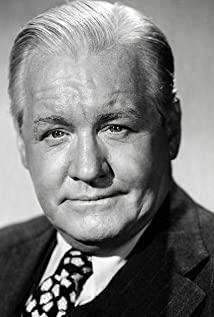First, a person's behavior is in accordance with the national interest and the law, but the behavior has caused evil results. Should this person be responsible for the evil results? Second, should the professional ethics of judges be loyal to the law? Or should it be judged above the law? If they are above the law, what criteria should the judge follow? In other words, are there any rules higher than the actual law that can be used to judge the actual law? The defense lawyer of the film is a German. He tried to turn the focus around two cases into: whether a man is mentally retarded (mental disability sterilization case) and whether a woman cheats (the Feldster race pollution case), he did not try to discuss Whether the draconian law is guilty, but tacitly tacitly discusses whether the witness’s behavior conforms to the law itself on the premise that the Race Evolution Law is legal. This may be what Judge Jelling said in his final statement: The lawyer's statement implies that Germany under Hitler's rule serves the people, and may prove the possibility of a resurgence of the Nazis. Mrs. Bessel is a typical representative of the upper class in Germany. She cried out for her husband. He is a true hero. He died of political oppression rather than a just trial. She believed that Jelling should not be tried, and Jelling was truly just. People; she hates public prosecutors, and she thinks that the films that kill the Jews are the personal terror collection of the public prosecutors. She didn’t think that the people of the upper class in Germany had done anything wrong. She told the judge, “We are drinking here, how do we know about those who abused women and killed children?” “All of this is Hitler’s fault, and we are all forced. ". Both the lawyers and Mrs. Bessel are well able to represent the German public’s views on Nazi political parties and Nazi law. They believe that these law enforcers are loyal to the country, they agree with the state-based thinking of the Nazi law itself, and they believe that Germany caused it. The evil result is not a problem of Germany itself but a problem of the whole world. They believe that Germany was tried not because of Germany's wrongdoing but because of the failure of the German war. Many people think that Judge Yelling is a person with a sense of justice based on Judge Yelling's self-disgusting statement, but such a person also revealed in his self-statement that Germany needs Nazi political parties and Nazi laws. He is the enforcer of Nazi law, and his legal professional ethics requires him to be loyal to the law, but from a political perspective, he also agrees with the state-based thinking embodied in Nazi law. In short, he was loyal to Hitler and the Nazi law, but when he faced the pain caused by the Nazi law, his personal morality was unbearable. "He just didn't know that it would cause so many deaths." Everyone thinks that his actions are “helpless and worthy of forgiveness. But in stark contrast is Judge Haywood, who also faces pressure from American national interests, and the United States needs Germans. The support of the people and the leaders of the detained German people did not get the support of the German people, but Heywood resisted the pressure and upheld the law to make a judgment. The use of national interests as a guise was also explained by him: Ignoring the value of people is the real guilt. ("The purpose of those who participate in the making of the law is to destroy all of mankind. Law enforcement is even more involved in the execution of illegal actions. Anyone who participates in crime is guilty. Judge Yelling, we believe that he also hates evil, but we Pity for him should not be confused with the crimes he participated in. The distortion of people is only because of politics, betraying friendship, and murdering children under the guise of national interests. The best way to fight to the death is to kill with a knife. But the country is not a rock. The state is not personal, it has its own interests, and it is more difficult to maintain the state in times of difficulty. Let us stick to our oath: justice, truth, and the value of human rights.")
View more about Judgment at Nuremberg reviews











